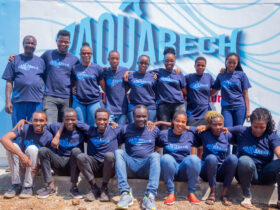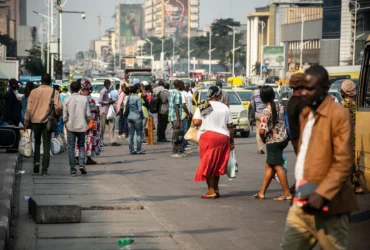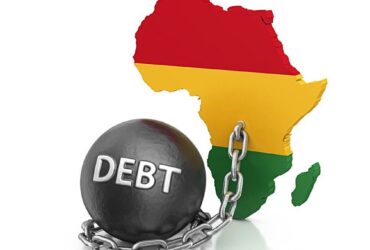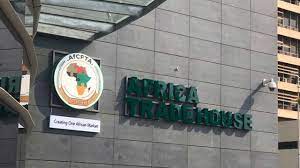In July 2023, there was a significant 46.5% decline in the amount of funds raised by African startups when compared to the same month in 2022. Cleantech maintained its leading position, securing 32.8% of the total funding raised on the continent.

By the conclusion of July, African startups had collectively garnered $123.4 million through 20 publicly disclosed transactions, as reported by Benjamindada. This figure represents a 46.5% year-on-year reduction in the funds raised in July 2022. Additionally, it indicates a 2.8% decrease from the funds raised in June 2023.
The fundraising landscape in July was spearheaded by East Africa, where startups in the region secured 37.5% of the total funds, resulting in a collective sum of $46.2 million, raised by countries like Rwanda, Kenya, and Somalia. Surprisingly, Central Africa emerged in second place, even though the region had been less active in this regard for some time. Central Africa accounted for 32.8% of the funds raised in July, with the Democratic Republic of the Congo (DRC) raising $40.5 million.
In July, West Africa and North Africa took the third and fourth positions, raising $26.6 million and $10 million, respectively. Notably, there were no disclosed funding rounds reported for Southern Africa during the same period.
East Africa:
In this region, a total of five startups successfully raised funds, with the highest funding round of $21 million going to Kasha, a health tech startup based in Rwanda. Following closely was Mydawa, a Kenyan startup, which secured $20 million in funding. Additionally, we observed Farmworks, also hailing from Kenya, raising $4.1 million, and Revivo obtaining preseed funding totaling $635,000. Furthermore, Caafisom, representing Somaliland’s first-ever funded startup, managed to secure $110,000 in funding, raising hopes for increased investor interest in the country.
In an interesting development, secure $110,000, an insurtech company with a health focus located in Rwanda, became part of Y Combinator’s summer cohort for the current year. Under the standard deal offered by the accelerator, Eden Care received $500,000 in funding. Notably, this investment by Y Combinator marked the organization’s first foray into the Rwandan market.
Kenya was the dominant force in the region this month, securing 53.8% of the total funding allocated to the region.
Central Africa
After an impressive fundraising of $51 million in 2022, the region is making headlines once more with DR Congo’s cleantech startup, Nuru, managing to secure a substantial $40 million in funding. It’s worth noting that this outstanding funding achievement sets a record as the highest amount raised by a single startup on the continent for the month of July. Additionally, a fintech startup from the DRC, Vaultpay, has gained entry into Y Combinator’s summer program and received the standard investment of $500,000 from this renowned accelerator.
West Africa:
In July, Nigerian startups took the lead by securing an overwhelming 99.8% of the total funds raised in the region. Meanwhile, Cote d’Ivoire’s Twende managed to raise $33,000 in funding. Among the Nigerian startups that made a significant impact in the region’s funding landscape were Terragon with $9 million, Moove with $8 million, Zuvy with $4.5 million, followed by Propel, which secured $2.74 million. Additionally, MyCover raised $1.25 million, and Clafiya secured $610,000 in funding. Notably, one of the three startups accepted into Y Combinator’s summer program was the Nigerian food-tech startup, Chow Central, which received $500,000 as part of the accelerator’s investment.
In July, the region contributed to 21.6% of the total funding raised.
North Africa:
In July, Egypt took the lead in this region, with three out of the four startups publicly disclosing their fundraising efforts. It’s noteworthy that Moroccan and Tunisian startups are making efforts to challenge Egypt’s dominance in the region’s fundraising landscape. For instance, Moroccan prop-tech startup Agenz successfully raised $1.3 million in funding, and Tunisian mobility startup Kaco announced a funding round without specifying the amount. Additionally, an Egyptian startup, Flash, secured $6 million, while Masroofi raised $1.5 million, and Exits MENA received $1.2 million in funding. Moreover, both Menthum and Cayesh announced funding rounds without disclosing the exact amounts.
Sector/Industry:
In July, cleantech startups maintained their prominent role, securing 32.4% of the total funding, with Nuru’s impressive $40 million round leading the way. This sector also led in June with a total of $52.3 million, accounting for 41% of the overall funds raised.
In addition to cleantech, other thriving sectors in July 2023 included fintech, which secured $21.7 million in funding, health tech with $20.7 million, and logistics, which garnered $21 million in investments.
The year 2023 has been quite challenging for African startups, with the first half (H1) experiencing a significant decline of 47.69% in funds raised compared to H1 2022. During the first half of the year, startups raised a total of $1.3 billion, whereas in H1 2022, they had raised $3.1 billion.
Stage:
During July, pre-seed startups were the frontrunners, with Nigeria’s invoice financing startup, Zuvy, managing to secure an impressive $4.5 million in funding, marking the highest pre-seed investment for that month. Following Zuvy’s remarkable achievement, two other startups, namely MyCover.ai from Nigeria and Exit MENA from Egypt, each obtained equal investments of $1.2 million.
Within the ecosystem, three seed-stage startups made significant progress. Flash, an Egyptian fintech startup, emerged as the leader in the seed funding category, securing the highest seed investment of $6 million. On the other hand, MyDawa, a health tech startup, dominated the series A category by raising a substantial $20 million in debt and equity financing.
Has fintech funding really dropped?
Between January and July, as reported by BD Funding Tracker, the FinTech sector received 23% of the total investments in 2023. Interestingly, this represents a 6.79% increase compared to the funds allocated to the FinTech sector during the same period in 2022, which amounted to $805.7 million. The question arises whether this marginal uptick in investment signifies a renewed interest by investors in the FinTech sector and an indication of growing confidence in its potential. Only time will tell.
Top raises by African startups from January to July
| MNT-Halan | $400 million |
|---|---|
| M-Kopa | $200 million debt + $55 million equity |
| Sun King | $130 million |
| Planet42 | $100 million equity and debt |
| Nuru | $40 million |
| Victory Farms | $35 million |
| Lulalend | $35 million |
The month of July serves as a reflection of the ongoing trends that have persisted since the second half of 2022. The year 2023 has been rather sluggish, following the reset in the funding market that commenced in 2022. Funding levels still significantly lag behind those of 2022, with a notable 35% decrease in funds raised during the corresponding period. Nevertheless, there are some regions, such as East Africa and Central Africa, displaying promising signs with impressive fundraising efforts by startups like Nuru and Kasha.
Cleantech startups have maintained their leading position in attracting funding, indicating a growing interest in sustainable and environmentally friendly ventures. E-commerce/retail, health tech, and fintech sectors have also received substantial investments, underscoring the diversity and potential of various segments within the African tech ecosystem.
As the tech ecosystem in the continent continues to evolve, resilient entrepreneurs and innovative startups must explore alternative funding sources and growth strategies to unlock their full potential.














Leave a Reply